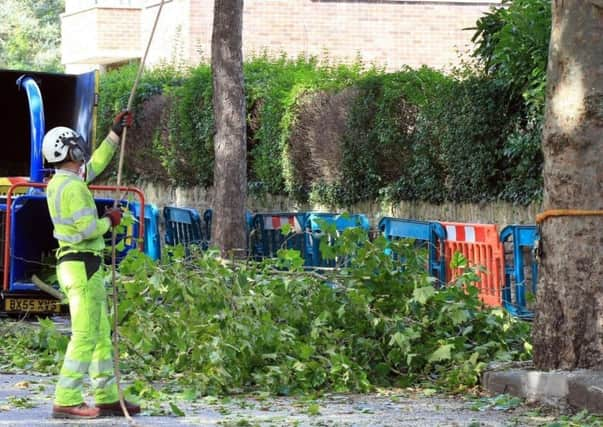Sheffield tree-felling protesters get £23,400 payout from South Yorkshire Police after arrests


Seven campaigners who were arrested under Trade Union Laws by the force have secured an out-of-court settlement following their claim for wrongful arrest and breach of the Human Rights Act.
A total of £24,300 has been paid in civil claims for damages to Calvin Payne, Simon Crump, Jeremy Peace, Paul Brooke, Gemma Lock, Kate Billington and Margaret Mark, who were arrested between November 2016 and February 2017 and were kept in custody for up to nine hours.
Advertisement
Hide AdAdvertisement
Hide AdAll were charged under section 241 of the Trade Union and Labour Relations Act but proceedings were subsequently discontinued.
It comes after the Independent Office for Police Conduct upheld appeals in August from six complainants. The IOPC said the force had “no grounds” to use the legislation to make the arrests and recommended “management action” for three officers involved.
Protesters who oppose a major tree-felling programme in the city had employed a tactic of standing directly under threatened trees to prevent their removal by council contractors.
In March 2017 after the Crown Prosecution Service dropped cases, police commissioner Alan Billings said there was “no mileage” in the force making arrests under the legislation, which is normally used in relation to workers on picket lines during strikes.
Advertisement
Hide AdAdvertisement
Hide AdSheffield City Council subsequently successfully applied for a High Court injunction making such ‘direct action’ protests involving standing underneath threatened trees an offence.
Part of the claim which has now led to the out-of-court settlement was a claim for breach of the Human Rights Act 1998 which recognises a right to peaceful protest.
Iftikhar Manzoor, a Howells Solicitors specialist in the civil liberties department who acted for the protestors, said: “I am pleased that South Yorkshire Police agreed to this settlement.
“The right to peaceful protest is fundamental in a democratic society.
Advertisement
Hide AdAdvertisement
Hide Ad“The recognition that this right was breached was central to the concerns of all the protesters in pursuing their complaints and damages claims. The importance of this outcome is a hope that lessons will be learnt by the police to avoid such unnecessary arrests in the future which were upsetting and stressful for my clients.”
But campaigner Paul Brooke said: “What I find astonishing is that South Yorkshire Police have not made any form of apology for our wrongful arrests.”
The operation, part of the council’s Streets Ahead programme, resumed last month after the council and contractor Amey agreed to look at new solutions to save more trees and invited Sheffield Tree Action Group members to oversee new inspections to determine which trees could be kept.
Sheffield City Council said that it would not be commenting specifically on the settlement, saying “the grounds for arrest remains a matter solely” for the police.
Advertisement
Hide AdAdvertisement
Hide AdA South Yorkshire Police spokesman said: “Following the Independent Office for Police Conduct’s (IOPC) findings in relation to arrests made in connection with protests in Sheffield, South Yorkshire Police raised concerns over the final judgement.
“The upheld appeals were not based on an error in law and rightly, no officers were found to have a case to answer for misconduct.
“However, South Yorkshire Police took the view that as a result of the IOPC findings, and in order to minimise the potential further impact to the public purse, in addition to existing significant costs for policing the protests, settlement with those individuals affected by this matter was agreed. The decision in respect of these cases does not bind SYP for any future claims it receives, and each claim will be subject to an individual assessment.
“No formal apology was requested as part of the civil claim.”